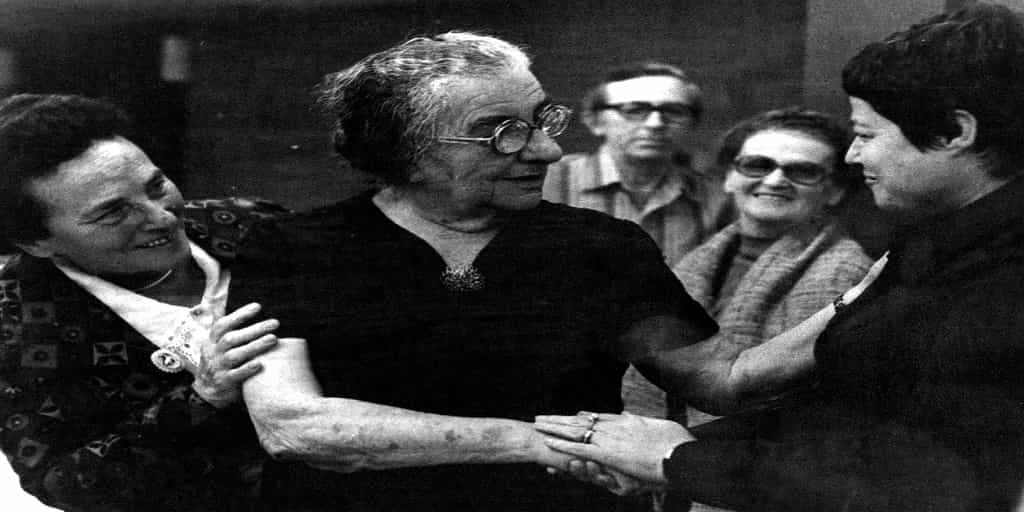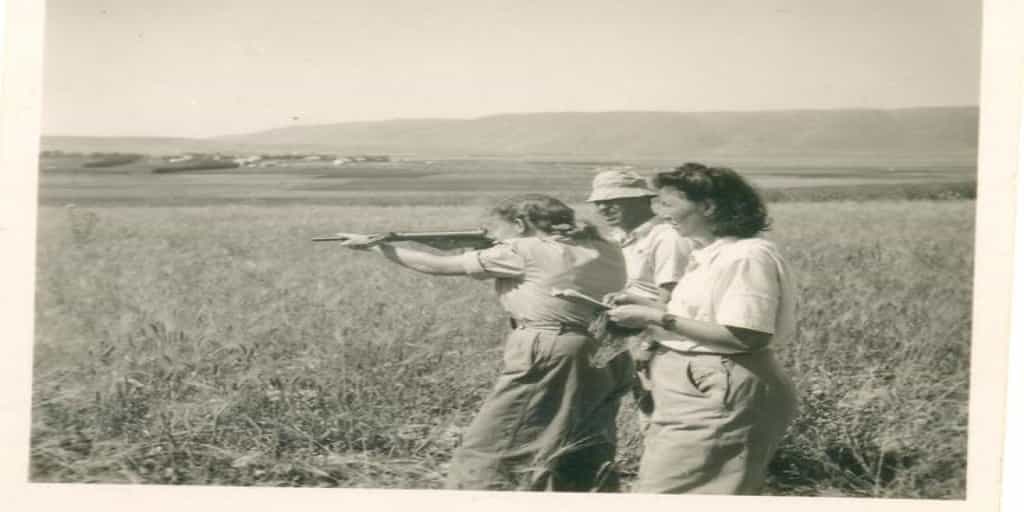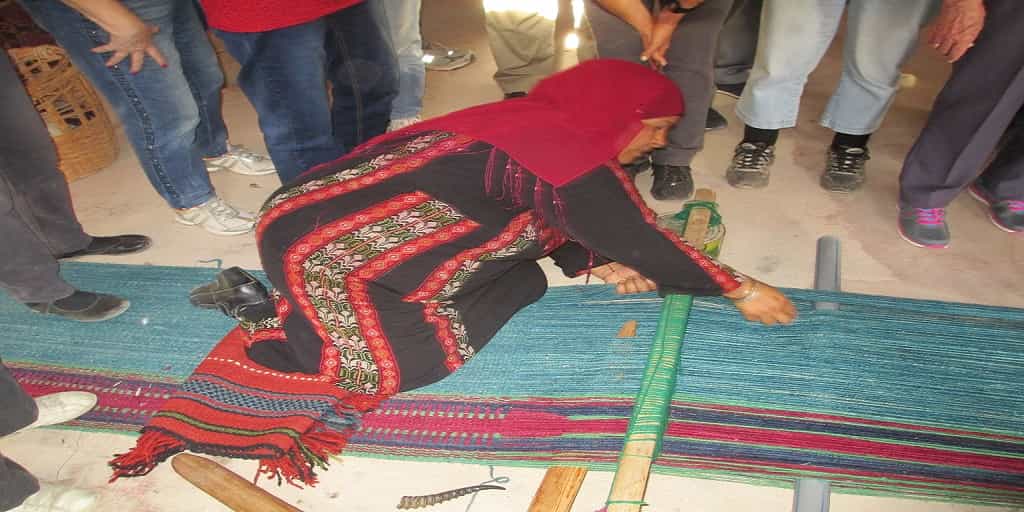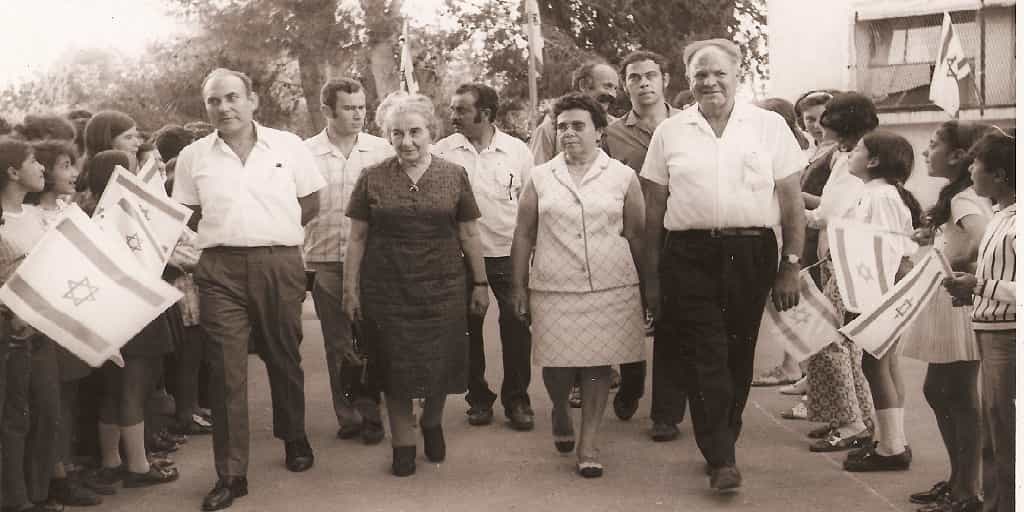In honor of International Women’s Day I want to write about women in Israel. Israel has a lot to learn from when it comes to women’s rights and equality. The country also has some way to go. Women vote in Israel, on all levels of government, they serve in the army beginning at the age of 18, they learn in Universities. Women hold all different positions and roles in the workforce. Fifteen percent of Israel’s parliament are women. Women hold sixty- nine percent of all positions in the army.
As of 2008, the maternal mortality rate was 7 per 100,000 births, one of the lowest in the world. In 2012 an IMD survey put Israel at 11 out of 59 developed nations for participation of women in the workplace, and 24 for the proportion of women in executive positions. However, everything is not warm and fuzzy. Men make 22 percent higher salaries than women. Only two women signed the Declaration of Independence, Israel has had only 1 female Prime Minister (Golda Meir), and no woman has ever been the Chief General of the Israel Defense Forces (IDF). So here is what Israel looks like on International Women’s Day 2016.
Political Leadership
Let’s start with politics. The Israeli Declaration of Independence states: “The State of Israel (…) will ensure complete equality of social and political rights to all its inhabitants irrespective of religion, race, or sex.” Two women signed the Declaration of Independence, and since Israel doesn’t have a Constitution, the document holds a lot more weight than the American Declaration of Independence in terms of Political Law. However, it has taken a long time for women to really enter the parliament. Even today, after we have already had a woman Prime Minister, only about 15% of Parliament is women. Today some one the important women in Israeli politics are Ayelet Shaked , Miri Regev, and Shelly Yachimovich.
Golda Meir pushed this door wide open for women when she became the third woman in the world to become prime minister of a country. Would what we see today really be happening if we didn’t have Golda Meir? If you want to learn more about this woman, read her memoirs My Life. She is known for many of her quotes. My favorite: ‘One cannot and must not try to erase the past merely because it does not fit the present.’

Women in the Military
Israel is one of the few countries in the world that requires mandatory military service for women. It is a tradition that exists from before the State was born. From the 1930’s women have been serving in Jewish armed services. Women can be found in 69% of all positions in the army.
But to get where we are today, something big happened in 1995. On November 8 of that year, Alice Miller, a student of aeronautics at the Technion as the part of the academic reserve, appealed to the Israeli Supreme Court for being turned down for the Israeli Air Force flight academy. In light of the appeal, Israeli president Ezer Weizman, a former IAF commander himself, revealed his true opinions about the issue and said “Listen maideleh, have you ever see a man knitting socks? Have you ever seen a female surgeon or a female being a conductor of an orchestra? Women are not able to withstand the pressures required for fighter pilots.”
Some president, huh? A year later, in 1996, ruled that the Israeli Air Force could not exclude qualified women from pilot training. While Ms. Alice Miller did not pass the required exams, the ruling was a HUGE event. Women could now enter units that were until that point were all- male units. This includes Israelinavy officers’ course, artillery courses, and the Israeli Border Police.

Moving Forward
In January 2000, the ‘Equality Amendment to the Military Service law defined the right of female soldiers to volunteer for combat professions. It stated “the right of women to serve in any role in the IDF is equal to the right of men.” Women are accepted into programs based on if they have the physical and mental capabilities for the specific program. That assessment is determined by those who run the program, which gives room for discrimination. But this law was, and is, a big deal.
In 2001, the first female jet fighter pilot, Roni Zucherman, received her wings. Five years later, the first female pilots and navigators graduate from the IAF training course. Several hundred women entered combat units as intelligence gatherers, social workers, medics, and engineers. So when the Second Lebanon War broke out in the summer of 2006, women fought in the field right alongside men. And with that we have to remember Sgt. Maj. Keren Tendler, who was the first female combat soldier to be killed in action.
Religious Sphere
Where does the religious sphere come into play on International Women’s Day? The religious sphere in Israel is an interesting one. The issues vary depending on what religion we are talking about. Women, and men, have to find the balance between tradition and modernity. One of the struggles is the seating on the bus. In the Haredi, or ultra- orthodox Jewish, world men and women do not touch one another. In some cases, men and women won’t even look at one another.
So this can be problematic for them when ultra- orthodox Jews take the bus. So there are specific bus lines where women sit in the back of the bus and men sit in the front of the bus. While it is to prevent men and women from touching by accident, it strikes an uncomfortable chord with some of us. Another issue is the differences between men and women in the Bedouin society. Women are often put on the sidelines of society. Many women don’t learn passed the 1st grade. Traditional men want their wives to cook, maintain the house, and have children.
But slowly religious women are entering society on a more and more equal level. Recently a Haredi woman was promoted to become a Dean in Bar Ilan University. More and more Bedouin women are going to universities, as are traditional Druze and Muslim women. ALL WOMEN CAN DRIVE, NO MATTER HOW RELIGIOUS THEY ARE. This is very important to me to mention when in certain parts of the world women can’t because of a religious basis.

Sexual Harassment Against Women
Unfortunately, sexual harassment exists in Israel. Part of why we have a day like International Women’s Day is for issues like this. We need to raise awareness about it. The government is dealing with this problem. Rape, including spousal rape, is a felony in Israel, and is punishable by 16 years in prison. The penalty is doubled when the assailant is a relative of the victim. There are nine rape crisis centers that offer a 24- hour crisis line for victims.
In 1998, the Israeli Sexual Harassment Law was passed. It interprets sexual harassment broadly, and prohibits the behavior as a ‘discriminatory practice, a restriction of liberty, an offense to human dignity, a violation of every person’s right to elementary respect, and an infringement of the right to privacy.’ In addition the law prohibits intimidation or retaliation of any kind. Polygamy is illegal. But if a polygamous family moves to Israel from a country where polygamy is legal, the marriage stands.
Minority Women
Women of a minority have a double battle to think about on International Women’s Day. Because they have to balance their identities as women, and as that minority, and as Israeli, they have to find where they can be themselves and be comfortable. They sometimes face a double prejudice, so they have to work doubly hard to get just as far. But as full citizens, they have the same full rights as everyone else.
The Authority for the Advancement of the Status of Women in the Prime Minister’s Office grants scholarships for higher education for Druze, Bedouin, and Circassian female students. The Authority also holds professional training course in Arab, Druze, and Circassian localities. When walking down the street, especially in cities like Jerusalem, you can see Muslim women, religious Jewish women, Druze women, Bedouin women, Christian women, and many more. They are just as much a part of society as anyone else!
Where do men come into play?
When we talk about women in society, it is also important to address men’s role in that very same society.From my own experience, men in Israel have taken a bigger role in the home than men in the United States. Men help out at home, clean, cook, taking the children to school, etc. I see all of this happen much less in the United States. And that’s good. If the man in the family is willing to help out around the house and with the children, it helps women in the family participate in society, go to work, maybe spend more time at work instead having to go home when the children finish school. What can they do better? Celebrate International Women’s Day with their mothers, sisters, wives, and daughters!
My Female Role Models in Israel
Because we are celebrating International Women’s Day, I want to talk about some of the women in Israeli I really look up to here in Israel. Throughout this blog I’ve talked about some of the issues women face here in Israel, but living in Israel as a woman is a wonderful thing. Many times while living here, I have felt empowered as a woman. There are some women who have made this possible, and I truly look up to them.
#1: Golda Meir
Golda Meir was born on May 3, 1898, and came to Israel in 1921. She quickly entered politics when she was elected secretary of the Working Women’s Council, and slowly worked up the social ladder. Meir was the Jewish observer from Palestine at the Evian Conference in July 1938. She also worked closely with Jordan before Israel was born. Golda Meir worked as Foreign Minister before becoming Prime Minister in 1969. She resigned in 1974 after harsh criticism over the Yom Kippur War. My favorite quote from Meir is when asked about putting a curfew for women so the violence against women will decrease. Her response? ‘Why put a curfew on women? It’s the men who committed these crimes. Let a curfew on men and have them stay at home.’ Want more about Golda Meir?

#2: Lucy Aharish
I especially want to honor Luch Aharish on this International Women’s Day. Born on September 18, 1981, Lucy Aharish is an Israeli- Arab news presenter, reporter, and television host. In fact, she is the first Arab news presenter on Hebrew- language Israeli television. In the ceremony for Israeli Independence Day 2015, Ms. Aharish was honored to light one of the torches of the ceremony. What I really admire about Lucy Aharish is that she knows who she is and stands up for what she believes in.
She is a proud Israeli- Arab and has made it very clear that she believes in the State of Israel. That being said, she doesn’t agree with everything the State does, specifically with Arab/ Palestinian-Israeli tensions. She also makes that clear, and doesn’t make any bones about it. I really admire how she stands by her believes and what a strong woman Ms. Aharish is. Find more here.
#3: Dafna Meir
Many may have heard of Dafna Meir because of her death, as she was recently killed on January 17, 2016 by being stabbed by a Palestinian teenager. But her life was a truly amazing one. She was not only a mother and wife, but a foster parent, nurse, and advocate for birth control in the Orthodox Jewish world. Many believe she was the first nurse in Israel to teach women to use the diaphragm to prevent pregnancy. While a diaphragm may not be used in the States as often, it is a good alternative for the Orthodox Jewish world.
Additionally, she brought the reproductive concerns of women to authoritative rabbis. She worked to change the view of and increase awareness of reproductive rights that fit within the realm of Orthodox. And this is an incredibly important cause to work in. May her work be remembered, and continued, and may her memory be a blessing Find more about Dafna here.
#4: Shelly Yachimovich
Shelly Yachimovich was born on March 28, 1960 in Kfar Saba. Before entering politics, she was a journalist in print, broadcast, and radio media. She entered politics in 2006, and since she has blown the roof off the parliament. What I like about Ms. Yachimovich is her work for bring transparency to how politicians live. She has published her salaries and tax reports in the spirit of that transparency. She also lives in the Kerem HaTaymanim neighborhood of Tel Aviv, instead of a neighborhood like north Tel Aviv, or Herziliya. Ms. Yachimovich is truly working on something very important. Other works have been passing ‘the law of protection for employees who uncover corruption,’ the salary protection act, the National Health Insurance Law for Returning Citizens, the Lobbyists Law, and the Elongation of Maternity Leave Law. More about Shelly Yachimovich.
#5: Shahar Pe’er
The fifth woman I honor on International Women’s Day is Shahar Pe’er. While there are many more women to look up to in Israel, my last woman for International Women’s Day is Shahar Pe’er. Shahar was born on May 1, 1987, and is world know Israeli professional tennis player. She has won five singles and three doubles titles on the WTA tour. On May 12, 2008, she reached world number 14 in the doubles rankings. She made news when Dubai and Qater almost didn’t let her play because she was Israeli. But in the end, she was able to play, and she was very successful in the games.
Conclusion for International Women’s Day
Women have a lot of freedoms here in Israel. They can become whatever they wish to become. They can believe whatever belief system they wish, and work wherever they dream to do. Israeli education and society does not teach girls that they have to be super skinny to be beautiful. These are really important things within in society; things we should encourage and develop further. Every year on International Women’s Day, there are special programs on the radio. But we also need to work on the less developed things in Israel. We, men and women, need to constantly work for the better treatment and inclusion of women in our international community. May the women I mentioned here be an inspiration for all of us. And here I’m going to post two links: one is about an ancient woman in Jerusalem, and the second is one about more strong Israeli women in modern times.
On that note, I wish all women around the world a happy and insightful International Women’s Day. May the following year bring us much success.





